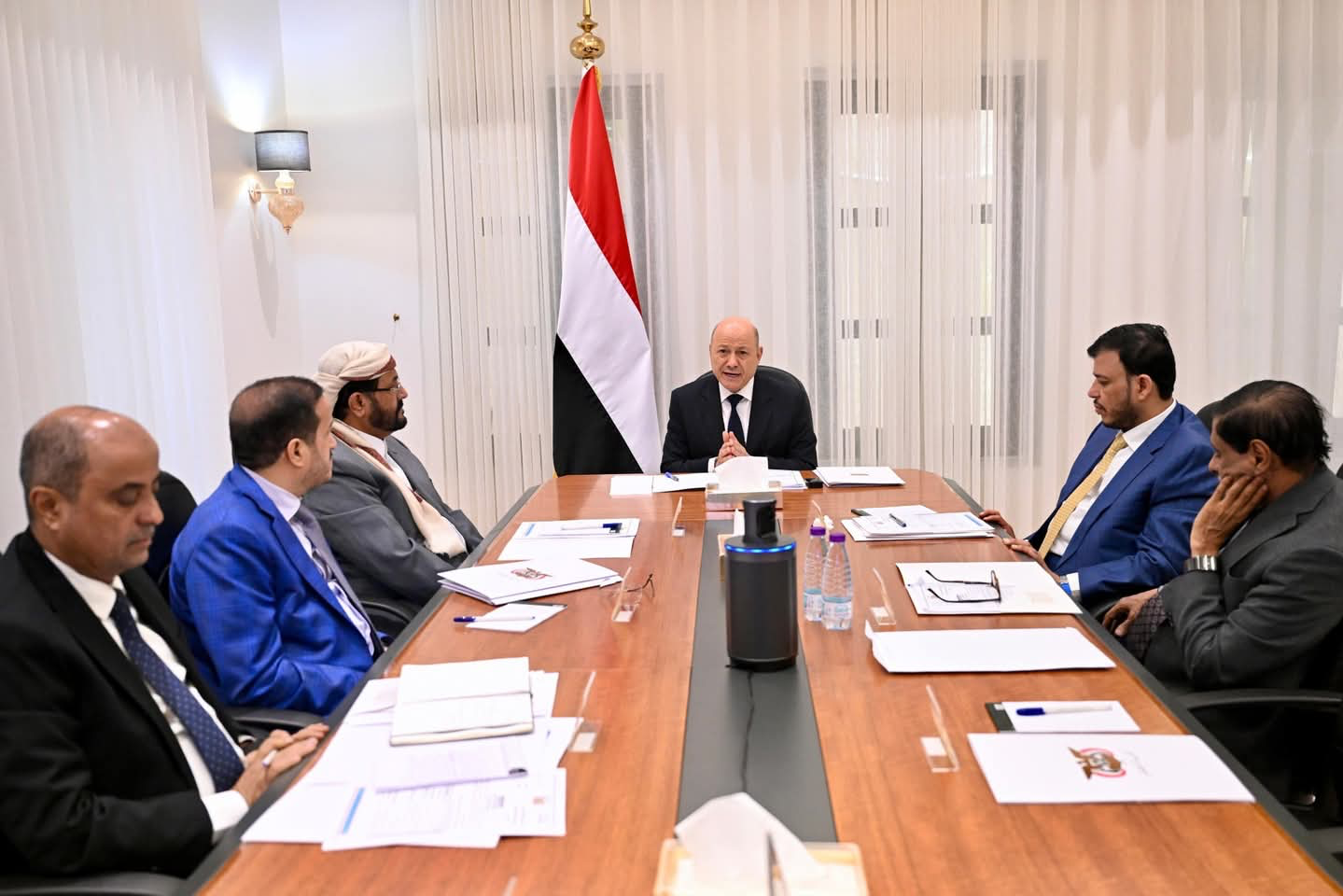


Barran Press
The Yemeni Presidential Leadership Council (PLC) convened its first meeting with newly appointed Prime Minister Salem bin Buraik on Monday, emphasizing the critical need for the government to operate effectively from within Yemen. The Council stressed the urgency of addressing citizens' concerns and essential needs for goods and services, alongside the continuation of institutional reforms.
According to the official Yemeni news agency Saba, the meeting saw the presence of all PLC members except Aidaroos al-Zubaidi. Prime Minister bin Buraik presented a general framework outlining his government's priorities for the upcoming period, particularly focusing on economic and service-related aspects, as well as the required presidential, regional, and international support.
During the meeting, the PLC urged the Prime Minister and cabinet members to work collaboratively as a unified team to overcome current challenges and respond to immediate priorities. These priorities include mobilizing all resources to support the effort to restore the state, containing economic deterioration, and strengthening partnerships with the Saudi-led coalition supporting the legitimate government.
The Presidential Council reiterated its commitment to supporting the government's efforts and facilitating its full exercise of authority in accordance with the constitution, laws, and transitional phase frameworks, including the declaration of the transfer of power and the regulations governing the work of the PLC and its supporting bodies.
Prime Minister bin Buraik's appointment on Saturday came after a Republican decree issued by President al-Alimi. He replaces Ahmed Awad bin Mubarak, whose relationship with the PLC President had reportedly become strained in recent times. Earlier today, bin Mubarak was appointed as an advisor to the PLC President.
Bin Buraik's appointment occurred shortly after Ahmed bin Mubarak announced his resignation as Prime Minister via a message on the X platform. In his resignation message, bin Mubarak stated that he faced several challenges during his tenure, including being prevented from exercising his constitutional powers in decision-making and being unable to implement a necessary cabinet reshuffle.
Reuters news agency, citing six government sources, reported that bin Mubarak's resignation followed a power struggle with PLC President al-Alimi regarding his assigned authorities, after al-Alimi reportedly rejected bin Mubarak's request to dismiss 12 cabinet ministers.
Bin Mubarak was appointed Prime Minister in February 2024, having previously served as Foreign Minister. He gained prominence in 2015 when he was kidnapped by the Houthi group, which is designated as a terrorist organization, while serving as the head of the presidential office during the Houthis' conflict with then-President Abd Rabbo Mansour Hadi.